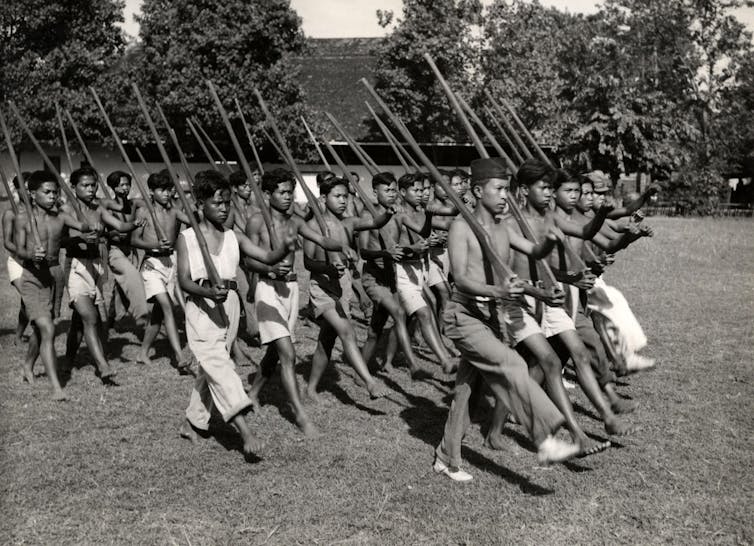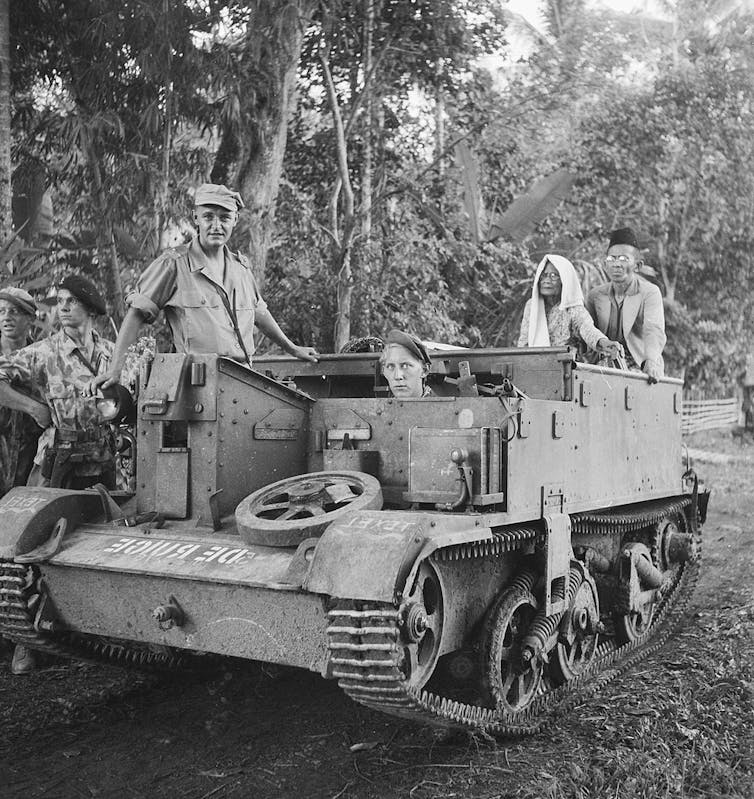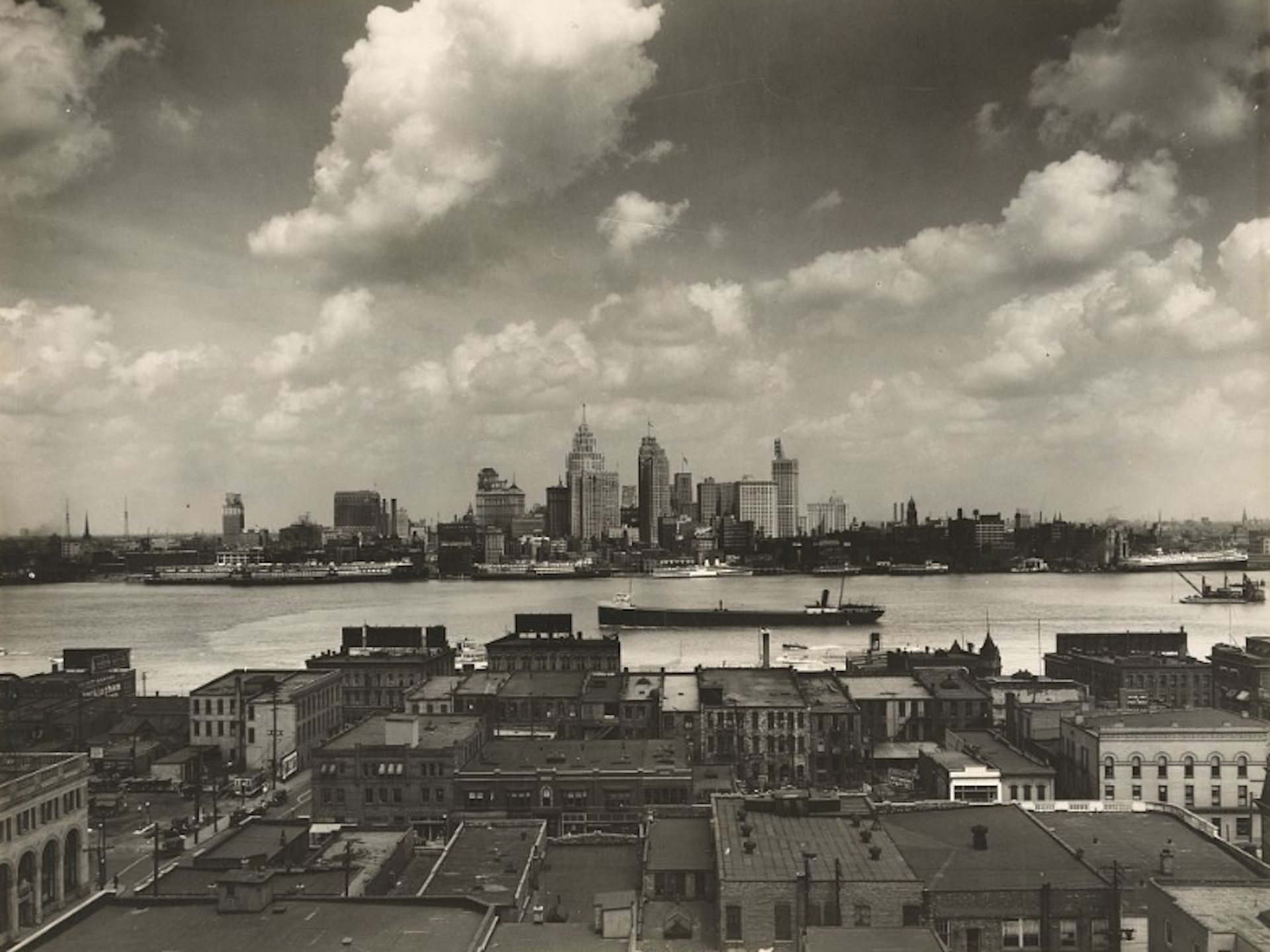Dutch Memorial Day: Maintaining colonial innocence by excluding people of color
The Dutch holiday on May 4 that commemorates the country's dead from World War II and after reveals how Dutch policy divides people along racial lines and ignores the Indonesian dead in that war.
On Dutch Memorial Day – May 4 – the Netherlands remembers its war dead from World War II and after.
A close look at the holiday reveals a culture that maintains its innocence about a history of colonial oppression.
Indonesia declared independence from the Netherlands on Aug. 17, 1945. This followed 350 years of Dutch East India Company control and Dutch state rule, as well as Japanese occupation during WWII.
After the declaration, the Netherlands waged a war to re-establish colonial control over Indonesia. The war, whose dead included Indonesians killed by summary execution, cost an estimated 300,000 Indonesian lives and around 6,000 casualties on the Dutch side.
While Indonesia has, to some extent, faced its history of decolonization violence, the Netherlands has not done so.
As a social scientist and director of Dutch and Flemish studies at the University of Michigan, I examine the reasons for this in my writing and teaching about issues of inclusion in the Dutch-language area.
Paid independence
The Indonesian War of Independence ended in 1949 with the signing of an internationally mediated independence agreement requiring Indonesia to take over the Dutch East India government’s debt, effectively paying the Netherlands 3.8 billion guilders for its independence. Payments continued until 2002.
A Western European nation thus rebuilt itself after World War II with Marshall Plan loans from the United States, plus a comparable amount of money from Indonesia, which was itself recovering from the war.
The struggle for historic justice for Indonesia continues today, on Dutch Memorial Day. The day involves a ceremony with two minutes of national silence and the laying of wreaths by the Dutch monarchs.
The Indonesians who fought against the Dutch and were killed in the war are not commemorated in this ceremony, despite the Netherlands officially considering them Dutch at the time.

An exclusive Memorial Day
Dutch Memorial Day is no stranger to protests against exclusion, and the Indonesian victims of the war are not the only ones who have been ignored on this day.
It took decades, for example, for Dutch Holocaust victims to be remembered.
Currently, a Dutch movement called “No May 4 For Me” has been protesting the exclusion of Indonesian casualties from remembrance while their killers are remembered. Among the killers were former Dutch Nazis, who were sent to Indonesia after World War II to fight for Holland in the War for Independence.
Recognizing Indonesian independence
So who is, and who is not, commemorated on Dutch Memorial Day?
The key to the answer is this: The Netherlands does not officially recognize Indonesia’s 1945 independence – it recognizes the 1949 date of the sovereignty agreement instead.
Here’s why the Netherlands cannot recognize Indonesia’s 1945 independence: If the Netherlands recognized that date, that would mean that the country had attacked a sovereign nation after World War II with the purpose of recolonizing it. And then the massacres, euphemistically referred to in the Netherlands as the “police actions,” would not be “police actions” but war crimes, as explained by Ady Setyawan and Marjolein Van Pagee.
Military action
According to the official Dutch story, however, Indonesia was “Dutch” during the “police actions,” and thus killing your own people is not a war crime but, rather, law enforcement gone wrong.
Except that law enforcement in the “police actions” were not police officers but soldiers serving in the Dutch army.

The publication “De Doden Tellen” (“Counting the Dead”), issued by the government-appointed National Committee for Memorial Day, betrays the inconsistencies of the official story. It cites the conflict as “police actions” while simultaneously using language of military “conquest.”
“During the so-called police actions, the Netherlands conquers areas and declares them as Dutch territory once again,” the National Committee publication says.
Apartheid
The Netherlands wants to count the people it has killed as its own, so as not to have committed war crimes, while at the same time not commemorating their deaths.
What lies beneath the surface of the exclusion is segregation on the basis of race.
Dutch colonialism did not grant citizenship to indigenous Indonesians. Until this past year, on Dutch Memorial Day, colonial apartheid policies were applied even after death. On a day that commemorates civilian casualties of war, Indonesian civilian casualties were not commemorated because they had no citizenship under colonial rule.
The chair of the National Committee for Memorial Day, Gerdi Verbeet, admitted as much in 2018 when she said that “those who had no Dutch passport are not remembered at the moment.”
For example, consider the Indonesian victims of World War II. Although the number is not verified, civilian casualties in Indonesia are commonly estimated at 4 million.
The official document that counts the dead to be commemorated on Dutch Memorial Day lists around 20,000, a stunning discrepancy.
The way that the Dutch come up with such a wildly different number is because they have been excluding all indigenous people.
A change?
This year, following years of pressure, the National Committee for Memorial Day states in email correspondence with me that the Netherlands now commemorates these stateless dead.
The change has not been made public, however, nor have the dehumanizing numbers above been updated. The National Committee did not answer direct questions about when these updates will be made.
In any real sense then, millions of people effectively continue to be erased on Dutch Memorial Day.
Also, any victims killed by the Dutch state in Indonesia between 1945-1949 continue not to be commemorated.
White innocence
So now, all Indonesian civilians who died under Japanese occupation in WWII may be commemorated in the Netherlands. But those civilians killed by the Dutch state after WWII are not – only Dutch military are recognized. These are the rules today, and when I asked why the shift to “military-only” commemoration happens after WWII, I did not receive an answer.
One sticking point remains. While the Netherlands was still catching its breath from Nazi terror in the months after World War II, Dutch civilians died in Indonesia. They were killed as Indonesia started to defend itself, violently, against recolonization attempts initially perpetrated by colonial British allies of the Dutch.
Yet current rules state that the cut off for military-only commemoration is not WWII but “directly after WWII,” just in time for Indonesian victims of Dutch violence to be excluded and for colonial innocence to be maintained.
Counting the dead
Dutch Memorial Day is a colonial story, then, about the value of human life, about who counts, who doesn’t and who gets to decide.
Four million brown civilian casualties of World War II have yet to be counted in official documents; 300,000 brown victims of the “police actions” do not count.
And in a sad twist in this tale, exactly one group of brown people does count: the fallen Indonesian soldiers, most of them Moluccans, who fought on the side of the Netherlands during the recolonization war. They are the victims-made-perpetrators by a colonial oppressor after a centurieslong history of exploitation.
The colonial mind
Colonial thinking as a form of racial supremacy is never far away in the Netherlands.
In Indonesia, it took the form of an assumed right to enslave people, kill them and take their land for profit. Afro-Surinamese Dutch scholar and writer Gloria Wekker, in her groundbreaking book “White Innocence,” analyzes it as the racial exceptionalism that paved the way for white Dutch culture’s blindness to the many forms of racism today.
Examples are the country’s worst employment outcomes for people of color in Europe other than Sweden. The ratio for arrests of nonwhites to whites in the Netherlands is three times worse than that ratio in the U.S.
And Forum for Democracy, the party that openly warns of the dangers of mixing Dutch and non-Dutch blood and laments the demise of the Dutch colonial empire just became the largest party in the Dutch Senate.
It is hardly surprising when, on May 4, in two solemn minutes, the country continues its colonial silence.
This is an updated version of a story that first ran on Aug. 15, 2018.
Annemarie Toebosch does not work for, consult, own shares in or receive funding from any company or organization that would benefit from this article, and has disclosed no relevant affiliations beyond their academic appointment.
Read These Next
Why US third parties perform best in the Northeast
Many Americans are unhappy with the two major parties but seldom support alternatives. New England is…
Detroit was once home to 18 Black-led hospitals – here’s how to understand their rise and fall
In the early 20th century, Detroit’s Black medical professionals created a network of health care…
Making sense of a chaotic planet: How understanding weather and climate risks depends on supercomput
Behind the long-term climate projections that affect our lives sits one of the most remarkable scientific…






